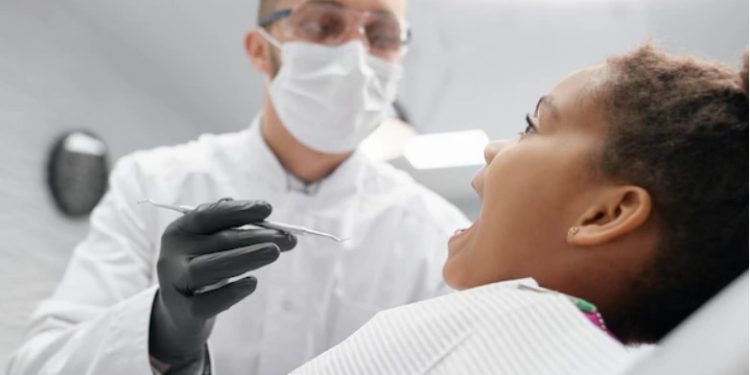In this blog post, we will explore common dental problems that often require oral surgery, providing insights into when oral surgery may be necessary. From the extraction of wisdom teeth to the intricacies of impacted teeth, this guide aims to enhance understanding of treatment options and potential complications. As we delve into various dental concerns, Dental Surgeons Ltd. specializes in addressing these issues with expertise and personalized care, ensuring a comprehensive view of oral surgeries.
Wisdom Teeth Extraction
The controversy surrounding the timing and necessity of wisdom teeth removal in dentistry stems from the challenge of identifying problems caused by these teeth. Studies show that just because the third molars don’t show symptoms doesn’t mean there isn’t an underlying problem. The choice between taking them out preventively or keeping an eye on them is still up in the air. The evidence from actual cases supports regular check-ups and evaluations, focusing on watching rather than pulling them out right away.
While some people might feel intense pain, swelling, or infections from their wisdom teeth, others might not feel a thing. Problems like pericoronitis, cavities, or spreading infections can pop up, making it important to think carefully about how to treat them. Options range from fixing and cleaning the wisdom tooth to getting rid of it entirely, and each person is looked at individually. Studies suggest that hanging onto wisdom teeth might bring about unexpected changes in gum disease, nearby cavities, and the potential for teeth to shift.
Impacted Wisdom Teeth
Impacted wisdom teeth, the third molars that lack sufficient space for normal tooth growth and development, present various challenges. While some impacted teeth remain asymptomatic, others may cause pain, damage to neighboring teeth, or issues like cavities and gum disease because they are hard to clean. Symptoms of infected impacted teeth include red or swollen gums, bleeding, jaw pain, swelling, bad breath, and difficulty opening the mouth. It’s important to see your local dentist promptly if you’re having symptoms in the area behind your last molar.
Jaw Surgery – Torus Removal
Torus mandibularis, a bony growth on the mouth’s floor, may require surgical intervention if it interferes with chewing, speaking, or denture placement. The growth, while generally harmless, can cause difficulties in daily functions. The procedure involves removing the torus through local anesthesia, and recovery typically takes around four weeks.
Tooth Extractions
Teeth exhibiting no symptoms or apparent issues, known as being asymptomatic, may still require intervention based on the nature of the problem. Treatment options include root canal procedures, crowns, and fillings. Surgical extraction becomes necessary for severe cases involving infection, decay, cysts, or damage to neighboring teeth.
Gum Disease and Surgery
Gum surgery, also called periodontal surgery, is used to treat gum diseases like gingivitis and periodontitis. The goal is to repair damaged bones and tissues, prevent tooth loss, decrease gum gaps, reshape the jawbone, and get rid of bacteria and infection. The specific surgical techniques employed depend on the seriousness of the condition. These may include deep scaling, flap surgery, bone grafting, or a variety of other procedures.
Healing after gum surgery requires attentive post-operative care, which includes using antiseptic mouthwash, making dietary adjustments, and avoiding strenuous activities. The expense of the surgery can differ, and it’s important to think about insurance coverage. Avoiding gum disease involves maintaining good oral hygiene habits and getting regular dental check-ups.
Conclusion
In summary, this exploration of oral surgeries highlights the intricacies of everyday dental problems. Whether it’s removing wisdom teeth or undergoing gum disease surgery, making informed decisions and receiving personalized care are essential. Dental Surgeons Ltd. specializes in providing comprehensive care and expertise, ensuring clarity in your journey towards optimal oral health. That’s why we encourage a proactive approach to well-informed dental care.
